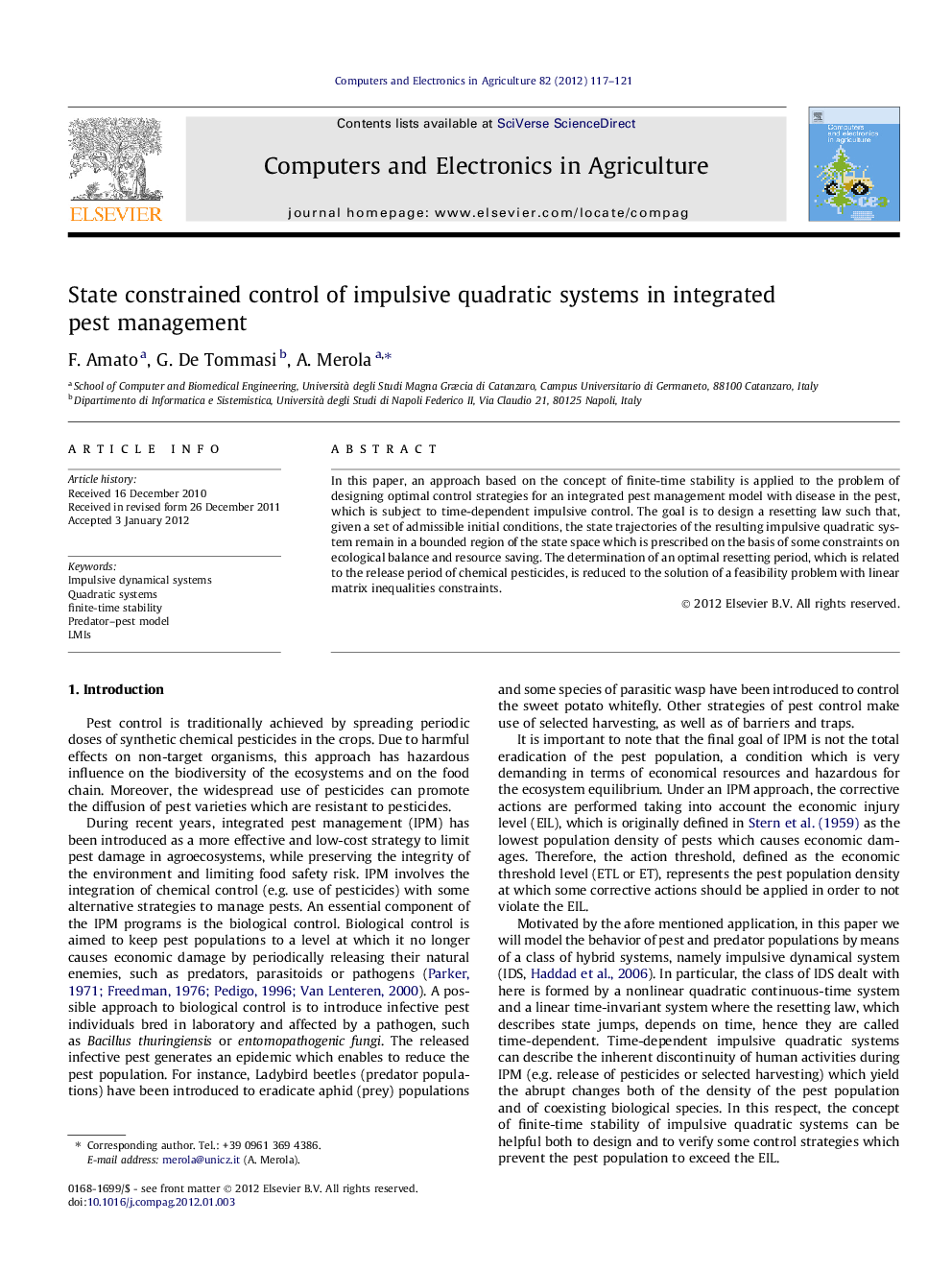| Article ID | Journal | Published Year | Pages | File Type |
|---|---|---|---|---|
| 84559 | Computers and Electronics in Agriculture | 2012 | 5 Pages |
In this paper, an approach based on the concept of finite-time stability is applied to the problem of designing optimal control strategies for an integrated pest management model with disease in the pest, which is subject to time-dependent impulsive control. The goal is to design a resetting law such that, given a set of admissible initial conditions, the state trajectories of the resulting impulsive quadratic system remain in a bounded region of the state space which is prescribed on the basis of some constraints on ecological balance and resource saving. The determination of an optimal resetting period, which is related to the release period of chemical pesticides, is reduced to the solution of a feasibility problem with linear matrix inequalities constraints.
► The concept of finite-time stability is applied to integrated pest management (IPM). ► A viable approach to design and verification of IPM strategies is proposed. ► The conceived IPM design procedure involves the solution of an optimization problem. ► This procedure allows to optimize the release period of synthetic pesticides.
